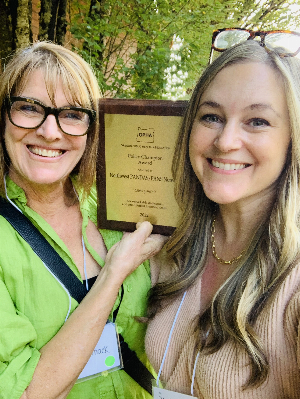
May 5-9, 2025 - Virtual via Zoom
Children should not be healthy one day and in need of psychiatric care the next. 1 in 200 children are affected by these post-infectious disorders known as PANDAS/PANS. An abrupt onset of obsessive compulsive disorder and/or eating restrictions and/or tics could indicate that neuroinflammation is to blame. It is vital that anyone working with children and youth learn about these disorders so we can avoid these kids being misdiagnosed and overlooked. Early diagnosis and medical treatment is necessary and leads to better outcomes.

Sarah holds a master’s degree in Public Administration; Health Administration and is the co-founder and executive director of the Northwest PANDAS/PANS Network. In her role as ED for NWPPN, she has hosted the first Northwest PANDAS/PANS Provider roundtable, coordinated five Grand Rounds, introduced and passed legislation in Oregon, Washington, and Idaho, coordinated 4 Awareness Day Walks and supported over 1,000 families in the Northwest. Prior to her work establishing NWPPN, she worked extensively in the healthcare industry. Her work experience includes healthcare administration, health insurance administration and renewal, social work and advocacy.